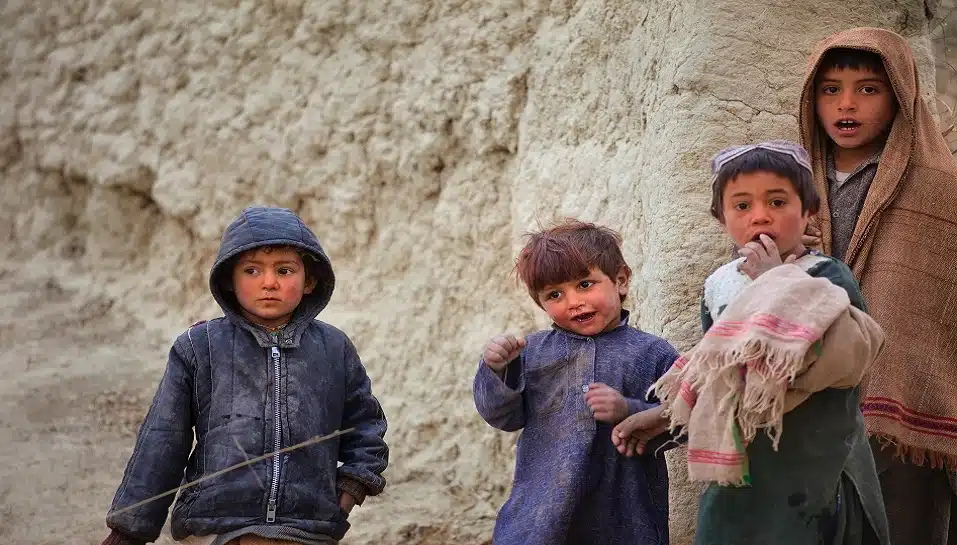More than 90 percent of Afghans have been suffering from some form of food insecurity since last August, skipping meals or whole days of eating and engaging in extreme coping mechanisms to pay for food, including sending children to work
Over one million Afghan children under 5 suffer from prolonged acute malnutrition, making them vulnerable to significant health problems, including stunting, says the Human Rights Watch report, released early this month.
The report says Afghanistan’s humanitarian crisis cannot be effectively addressed unless the United States and other governments ease restrictions on the country’s banking sector to facilitate legitimate economic activity and humanitarian aid.
“Afghanistan’s intensifying hunger and health crisis is urgent and at its root is a banking crisis,” said John Sifton, Asia advocacy director at Human Rights Watch. “Regardless of the Taliban’s status or credibility with outside governments, international economic restrictions are still driving the country’s catastrophe and hurting the Afghan people.”
Despite actions by the US and others to license banking transactions with Afghan entities, Afghanistan’s central bank remains unable to access its foreign currency reserves or process or receive most international transactions. As a result, the country continues to suffer from a major liquidity crisis and lack of banknotes. Businesses, humanitarian groups, and private banks continue to report extensive restrictions on their operational capacities. At the same time, because outside donors have severely cut funding to support Afghanistan health, education, and other essential sectors, millions of Afghans have lost their incomes.
Acute malnutrition is entrenched across Afghanistan, even though food and basic supplies are available in markets throughout the country. An Afghan humanitarian official told Human Rights Watch in mid-July that people have nothing to eat.
“You may not imagine it, but children are starving…. The situation is dire, especially if you go to the villages,” the official is quoted to have said, adding he knew of one family, which had lost two children, aged 5 and 2, to starvation in the last two months.
The official further said that he knew of no shortages in food supplies and that the causes of the crisis were economic: “A functioning banking system is an immediate and crucial need to address the humanitarian crisis,” he said.
Overall, more than 90 percent of Afghans have been suffering from some form of food insecurity since last August, skipping meals or whole days of eating and engaging in extreme coping mechanisms to pay for food, including sending children to work. Afghanistan’s economic collapse was caused in part by a drop in most families’ incomes following the Taliban takeover and foreign donors’ decisions to suspend outside budgetary support for numerous government, humanitarian, and development sectors, including education and health.
US and World Bank decisions to restrict Afghanistan’s banking sector have significantly amplified the crisis by hampering most legitimate economic activities, including humanitarian efforts. The Central Bank of Afghanistan is unable to carry out basic central banking functions, including holding currency auctions, importing banknotes, and processing or settling legitimate commercial and humanitarian transactions. Because of these incapacities, even basic economic activities remain severely curtailed.

















